The Book of Boba Fett episode 7 recap: a fittingly muddled season finale
Huge spoilers ahead
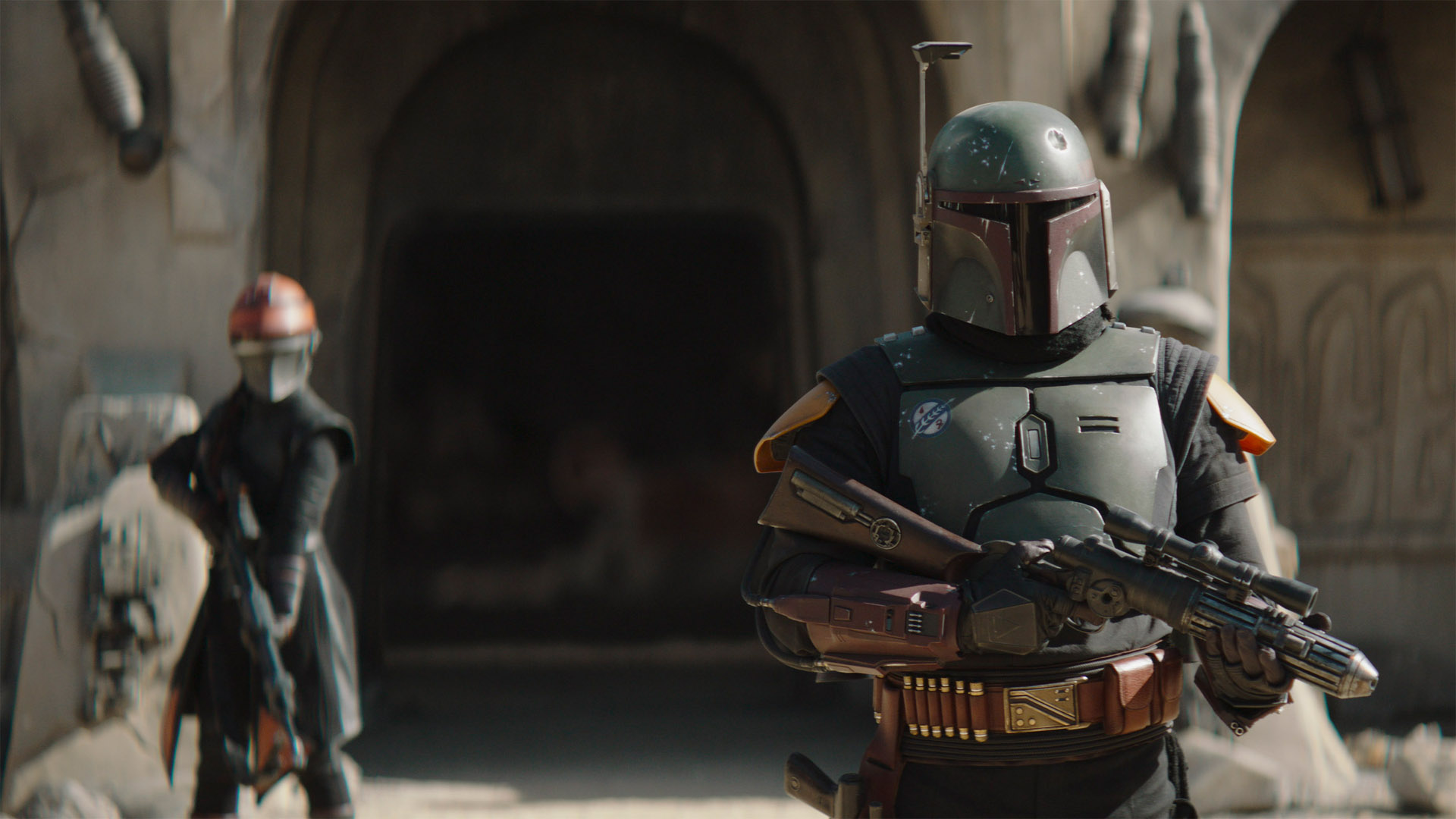
Sign up for breaking news, reviews, opinion, top tech deals, and more.
You are now subscribed
Your newsletter sign-up was successful
- Episode 7 (of 7), ‘Chapter 7: In the Name of Honor’
- Written by Jon Favreau
- Directed by Robert Rodriguez
★★
Spoilers follow for The Book of Boba Fett.
After two episodes of complete silence, Boba Fett has finally spoken – but it’s debatable whether the character's rediscovery of his voice is worthwhile.
The storm that’s been brewing in Mos Espa’s criminal underworld has finally exploded into life, and the shoot-out on the city’s streets is every bit the blaze of blaster fire and Mandalorian fighting moves you may have predicted.
It’s also, though, disappointingly static and uninventive. In fact, with few genuine surprises across the episode’s overstretched running time, it feels like the Star Wars show’s supply of wow factor on Mando, Luke and Baby Yoda’s exploits was used up in its episodic predecessors.
As the first instalment devoid of flashbacks, or narrative diversions in the company of other characters – there are also significantly fewer references to previous events in Star Wars canon – ‘In The Name of Honor’ focuses entirely on the former bounty hunter’s efforts to rule Mos Espa.
Disappointingly, you can’t escape the feeling that there was never much of a plan for the character’s seasonal arc. This finale is a tale of underpowered villains, telegraphed plot points (rampaging Rancor, we’re looking at you) and an over-reliance on the season finale formula that’s previously been seen in The Mandalorian. The difference here is that, unlike when Mando rallied his friends to protect Grogu, the motivations of Boba Fett and his associates are much harder to define or root for.

The main reason for that is Fett himself. While his status as a strong, silent type means we’ve never gotten to know him, in this show he’s a mass of contradictions.
Sign up for breaking news, reviews, opinion, top tech deals, and more.
It seems particularly implausible, for instance, that a man who carried the (now seemingly undeserved) reputation as the most ruthless bounty hunter in the galaxy should go through such a significant reinvention after an extended stay with the Tuskens in the Dune Sea.
Where Mando would stick around to fight a lost cause is entirely consistent with the character’s history – this is the way, after all – Fett’s new-found respect for his charges feels like a cynical attempt to turn a dark side character into a hero suitable for family audiences. After all, anyone who refuses to “negotiate with murderers” wouldn’t have got very far in Jabba’s crime empire.
Indeed, Fett’s interactions with former mercenary associate Cad Bane – the show’s best antagonist by at least 12 parsecs – are an unfortunate reminder of the seedy underworld The Book of Boba Fett initially promised to inhabit. That's before the title character morphed into an unlikely man of the people, though, who offers soothing soaks in a bacta tank to his colleagues.
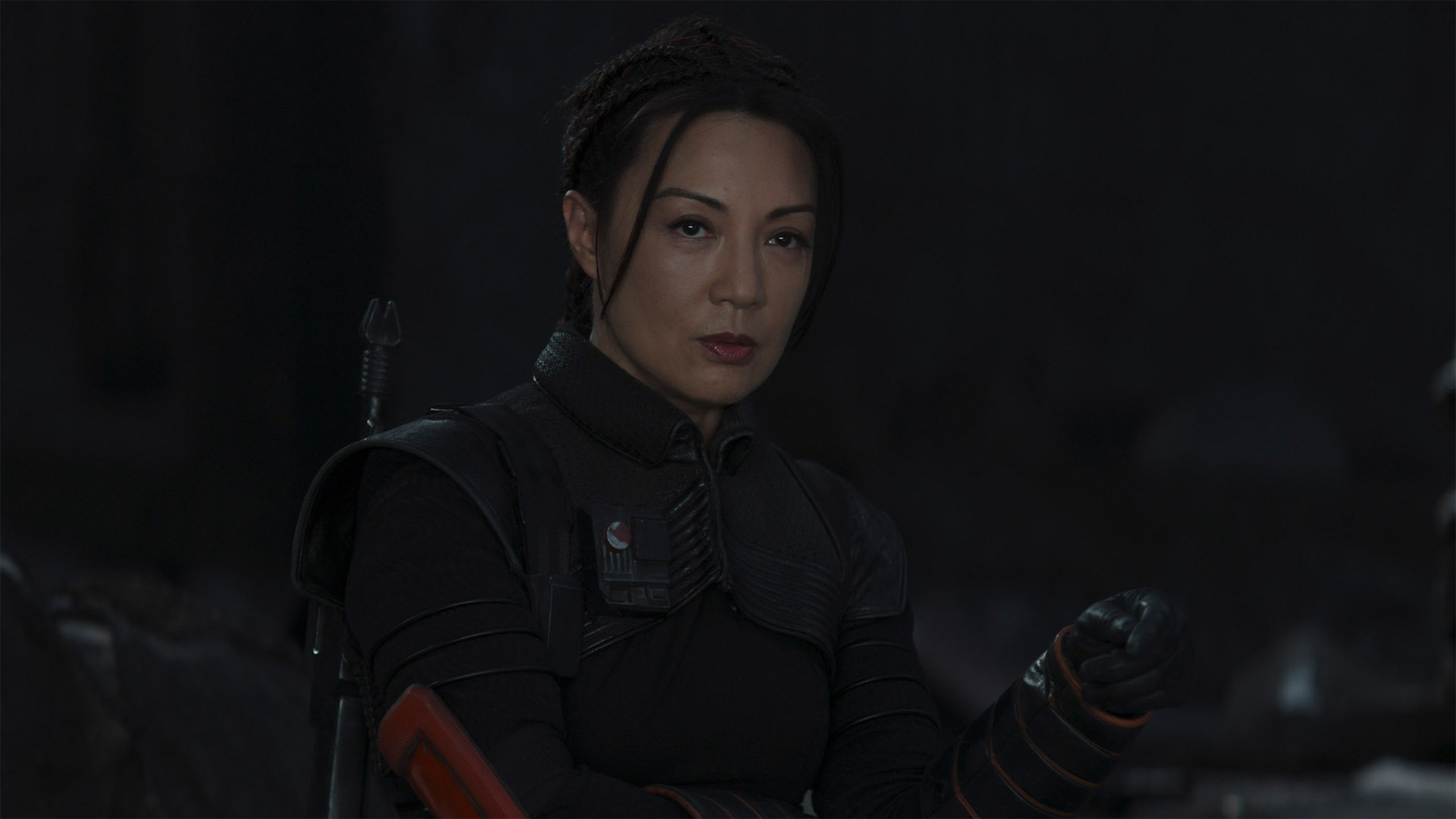
If Lucasfilm is serious about Fett’s shift to the light side, he deserved a better Big Bad than the Pykes. As moderately threatening graduates of The Clone Wars, they always felt like a front for a bona fide criminal mastermind who, it turns out, doesn’t actually exist.
Does anyone really believe those guys could send a pair of Hutts running – okay, technically slithering – from their claim to Tatooine’s spice trade? When the Pyke boss talks about protecting his profit margins, it’s strangely reminiscent of the much-ridiculed tax disputes that caused everything to go south in The Phantom Menace.
The numerous Pyke soldiers, meanwhile, are as disposable – and effective – as Stormtroopers. It’s bizarre, then, that a pair of master tacticians like Boba Fett and Mando should manoeuvre themselves into a position where they can be shot at from all angles. Even armed with jetpacks and missile launchers, they must be aware that, in Star Wars, having the high ground is everything.
Bringing a pair of souped-up battle droids into the fray is clearly supposed to spice things up (pun wholly intended). But, even with their enhanced firepower and forcefields, it’s hard to forget how easily dispatched they were in the prequel trilogy. It says something that the western-stylized Cad Bane should be the scariest threat in the episode, tormenting Boba Fett with his mix of quick shooting and laconic, cowboy-style taunts. If only remarks like “you’ve got your father’s blood pumping through your veins... you’re a killer” generated the necessary inner conflict in Fett.
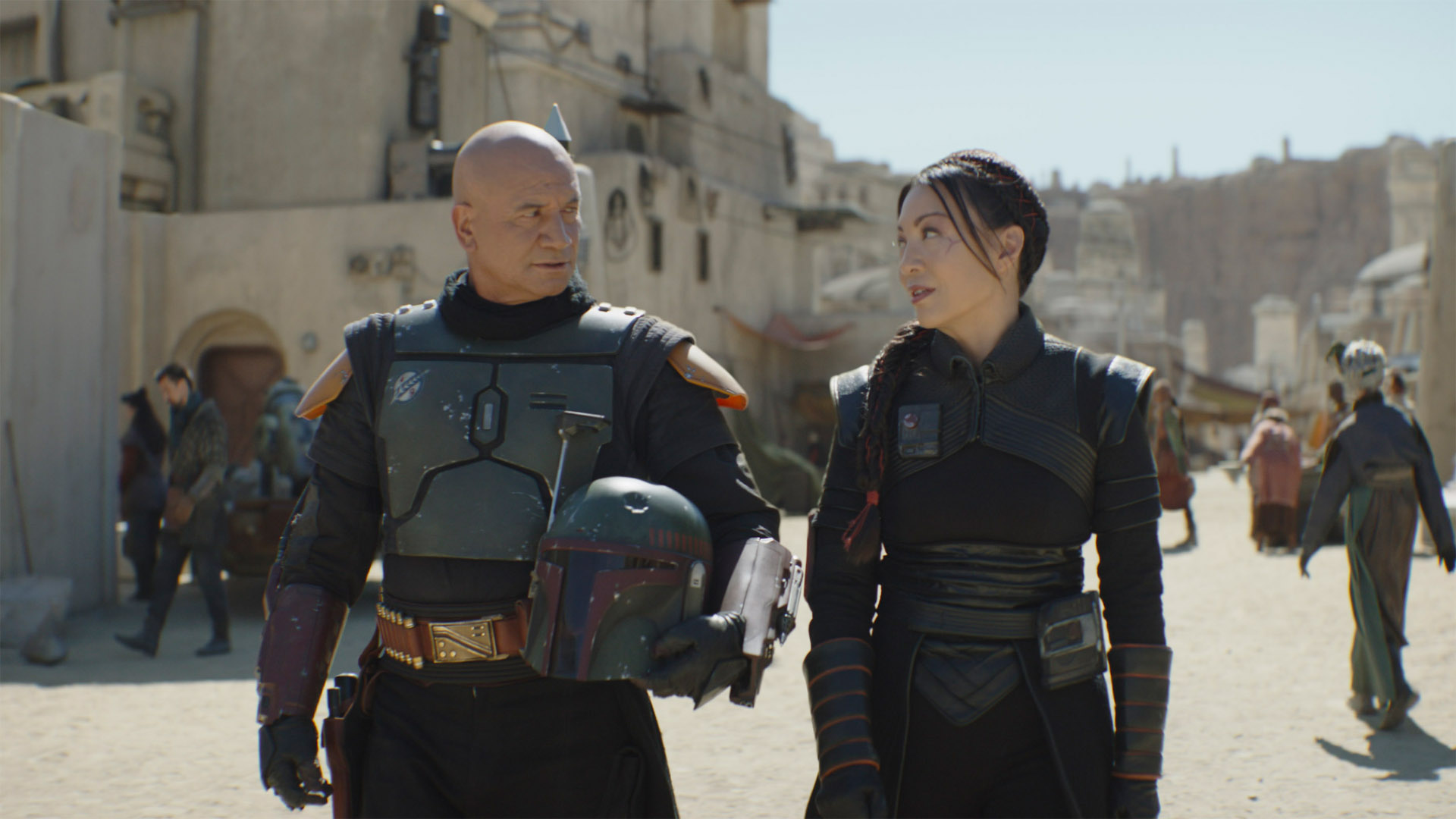
Bane’s death by gaffi stick ultimately feels like a waste of a character who could have a massive future in the Star Wars universe – luckily, the way the camera lingers on the flashing lights on his chest suggests there may be a way back. Or it may just be a symbol of the end of Boba’s old way of life.
The ease with which Fennec Shand – finally proving the “master assassin” on her business card is justified – dispatches the bad guys is also disappointing. Surely this was calling out for a (family-friendly) version of Michael Corleone’s elaborate succession of hits at the end of The Godfather?
But if there’s one thing that defines this season finale, it’s the shortage of surprises. Fett riding his (almost tame) Rancor into battle has been inevitable since the creature first arrived at the gates of Jabba’s Palace – if it hadn’t come to pass, we’d have been looking at a full-on Checkhov’s Gun scenario. Life-saving interventions from the Freetown militia and Fennec also have a feeling of inevitability, like the anticipation of a joke building to a punchline.
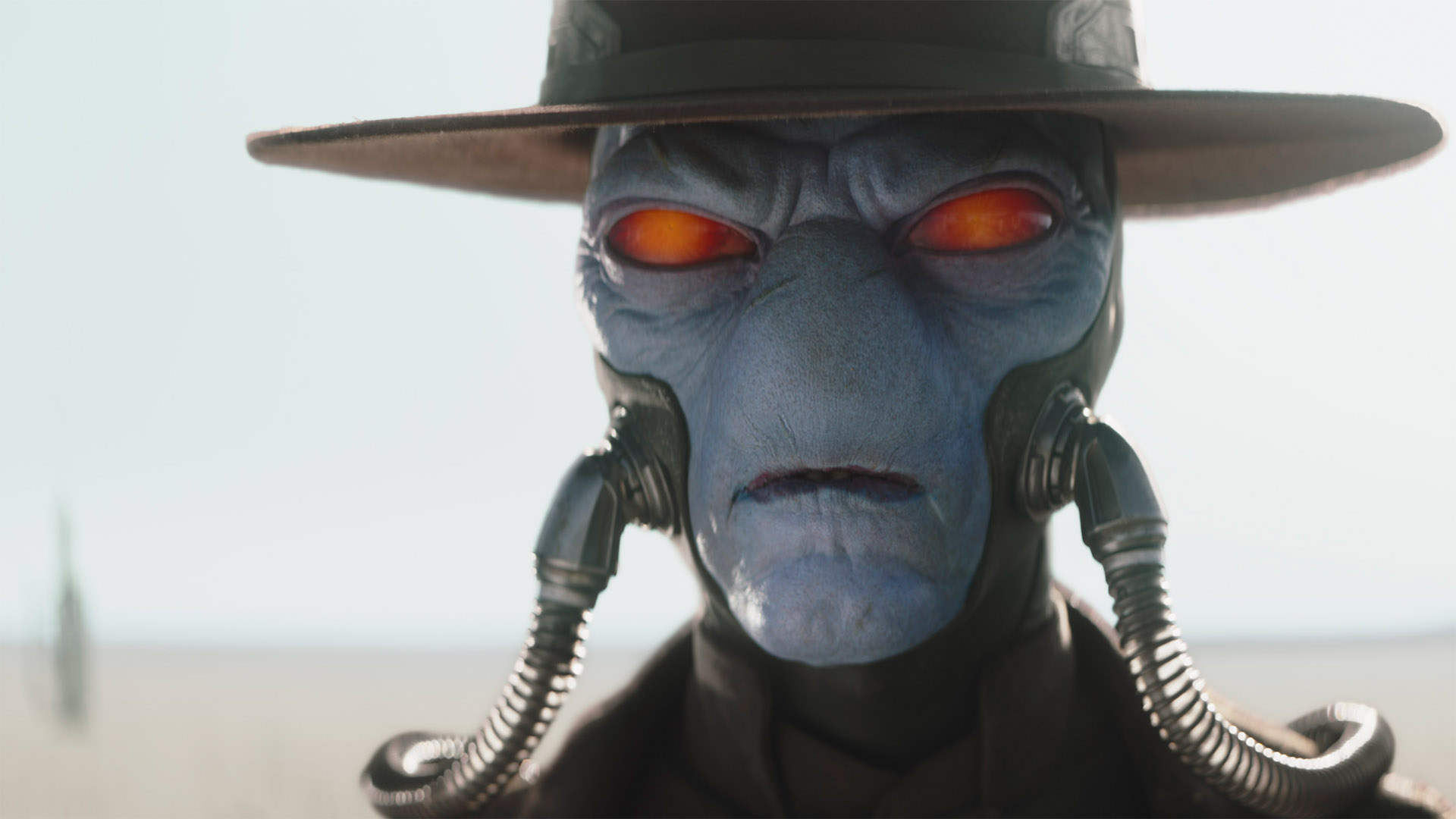
Relive the story so far with The Book of Boba Fett episode 1, The Book of Boba Fett episode 2, The Book of Boba Fett episode 3, The Book of Boba Fett episode 4, The Book of Boba Fett episode 5 and The Book of Boba Fett episode 6.
And where The Mandalorian season 2 finale gifted us a Luke Skywalker cameo and introduced a whole new TV show, all The Book of Boba Fett can muster is a shot of Cobb Vanth in Boba’s bacta tank, as the Modifier who restored Fennec to health waits to go to work. It’s great that Vanth lives to fight another day, but it really can’t compete for impact.
The one genuine surprise moment is Baby Yoda’s arrival in an X-Wing piloted by R2-D2. Considering the significance of Grogu’s Jedi vs Mando choice last week, his turning up on Peli Motto’s doorstep – decked out in his beskar chainmail – is a wonderfully understated beat in an episode that could rarely be accused of subtlety. There’s also some memorable moments when the Child uses the Force to leap into Mando’s arms, when he falls asleep next to the Rancor, and when Mando takes him for a spin in his new spacecraft.
All of which illustrates the most disappointing aspect of The Book of Boba Fett – that all the best bits of the show that bears the former bounty hunter’s name are actually The Mandalorian in slightly different clothing.
Our verdict
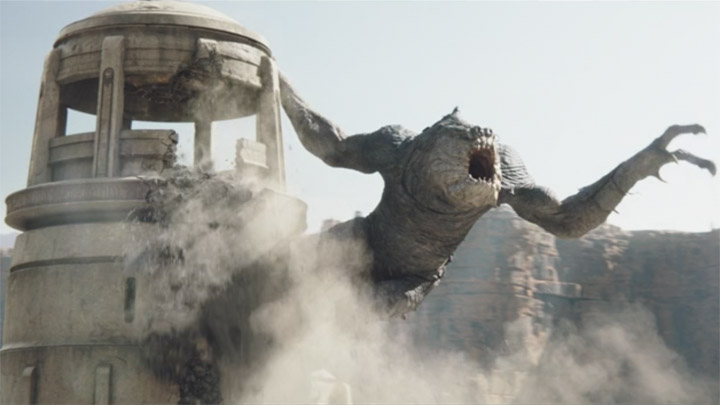
‘In the Name of Honor’ is an appropriately muddled finale to a mixed bag of a TV show. While it has its standout moments – most of them involving Mando and Baby Yoda – there are precious few moments to get a Star Wars fan’s blood pumping. The episode even fails to capitalise the open goal of a Rancor tearing chunks out of a souped-up battle droid.
It also highlights the writers’ struggles to get a handle on the protagonist and who they want him to be as Disney Plus' corner of the Star Wars galaxy evolves. At the end of seven episodes, has anything we’ve learned in The Book of Boba Fett enhanced the reputation of a character whose iconic status has been based on his four decades as an enigma? No, is the short answer.
If the show does get a second season, serious questions need to be asked about whether and how they can enhance the character. Because, right now, its biggest legacy is the way it’s teed up Mando's third season to perfection. And, on the evidence of what we’ve seen there, Din Djarin and Grogu’s return is going to be a blast.
Force facts
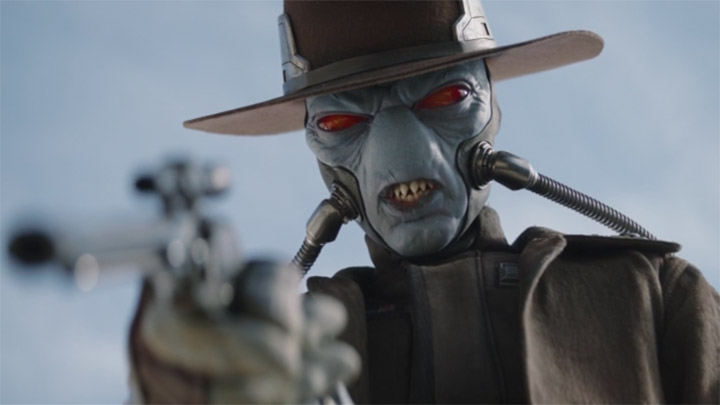
- When Cad Bane tells Mayor Mok Shaiz, “That all depends on how much your two stomachs can bear,” he’s giving us an impromptu lesson in Ithorian anatomy.
- A BD droid similar to Peli Motto’s appears in the Jedi: Fallen Order game.
- Luke’s famous X-Wing fighter gets a cameo. Later on in Star Wars canon, it will take an extended dip in the seas of Ahch-To, as Luke cuts himself off from the Force. In The Rise of Skywalker, Rey pilots the ship to the Sith homeworld of Exegol.
- There’s an unlikely reunion when R2-D2 lands in Peli Motto’s hangar bay – it’s almost definitely the first time R2’s seen R5-D4 since the pair were captive on a Jawa Sandcrawler in A New Hope. R5’s infamously bad motivator led to Uncle Owen and Luke buying R2 instead – changing the course of galactic history.
- “If that isn’t the Quacta calling the Stifling slimy” – as spoken by Cad Bane – repeats a saying Boba Fett himself uttered to Koska Reeves in The Mandalorian season 2 finale.
- Mok Shaiz’s Twi’lek majordomo was educated on the city planet of Coruscant, the seat of Old Republic (and later Imperial) government that features heavily in the prequel trilogy.
- There’s some familiar sound effects from Return of the Jedi in the episode, notably the squeals of the Gamorreans as they tumble off a cliff, the roars of Boba Fett’s pet Rancor, and the Wilhelm Scream when one Pyke Syndicate soldier is sent flying by the Rancor.
- There’s also some familiar bits of dialogue. The majordomo’s offer to “dispense with the pleasantries” recycles a Darth Vader line from Return of the Jedi, while Peli Motto calling a droid a “bucket of bolts” echoes Princess Leia’s description of the Millennium Falcon in The Empire Strikes Back.
- When Cad Bane says, “I’ve known you a long time, Boba”, it’s something of an understatement. Along with Aurra Sing and Dengar, Bane was one of the bounty hunters who mentored the young Fett after the death of his father, Jango. “Consider this my final lesson” is a reference to their master/pupil relationship.
- Using the word “tablet” to describe a portable computer feels conspicuously like the language of planet Earth. Traditionally, similar devices in the Star Wars galaxy have been known as datapads.
- As mentioned by the majordomo, Oba-Diah is the Pyke homeworld.
- Not to be confused with the Transformer Scorponok, the two Scorponek annihilator droids are a larger version of the Droidekas that appeared in the prequel trilogy – in canon, both models were products of the Colicoid Creation Nest. Wookieepedia suggests they’re based on concept art created for Attack of the Clones. In canon, they apparently came into Imperial possession at the end of the Clone Wars. The question is, how did the Pykes get their hands on them? Were they in league with an Imperial remnant like Moff Gideon’s?
- One of the Pyke uses “sleemo” as an insult. Anakin Skywalker also says the word in The Phantom Menace – it means “slimeball” in Huttese.
- The Rancor climbing up a Mos Espa tower is a clear nod to the original 1933 King Kong.
- Beskar not only repels blaster fire and light/darksabers – it’s also pretty useful against Rancor jaws.
- The meiloorun fruit Boba Fett picks up from a street vendor in Mos Espa has appeared in Star Wars before – they’re the favorite snack of Hera Syndulla in Star Wars Rebels.
The Book of Boba Fett is available to stream on DIsney Plus.
Richard is a freelance journalist specialising in movies and TV, primarily of the sci-fi and fantasy variety. An early encounter with a certain galaxy far, far away started a lifelong love affair with outer space, and these days Richard's happiest geeking out about Star Wars, Star Trek, Marvel and other long-running pop culture franchises. In a previous life he was editor of legendary sci-fi and fantasy magazine SFX, where he got to interview many of the biggest names in the business – though he'll always have a soft spot for Jeff Goldblum who (somewhat bizarrely) thought Richard's name was Winter.
- Tom PowerSenior Entertainment Reporter
